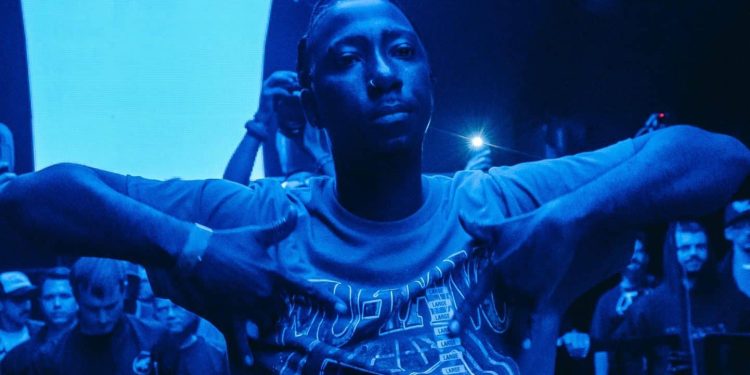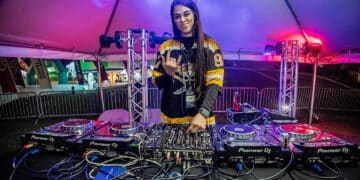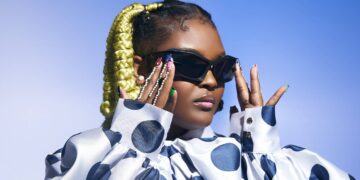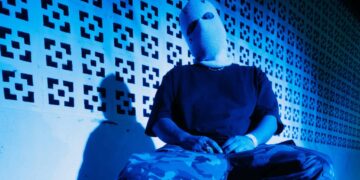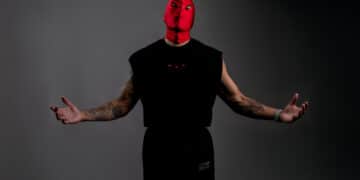In the midst of his Funk The System Tour, bass producer Father Funk stopped by to chat about his rock-influenced background, his latest album, and more.
Funk-fueled bass music has rapidly risen in popularity in recent years. Delivering his unique take to the beloved sound, Vancouver-based DJ and producer Father Funk has been climbing the ranks with each release, weaving a world of technicolor self-expression along the way.
A musician at his core, the pink-haired DJ incorporates his mastery of guitar, bass, drums, and trombone into his intricate productions, adding another layer to his genre-blurring bangers. With previous releases on Liquid Stranger‘s WAKAAN label and Jadū Dala, Father Funk has delivered performances at major events, including Boomtown, Glastonbury, and Shambhala, where he’s performed seven times.
Now entering a new chapter of the Father Funk project, the buzzworthy producer has released his latest album, Funk The System. Embracing creativity, independence, and rebellion, the 10-track project explores a spectrum of sounds as the talented bass producer displays his aptitude for crafting funky, boundary-breaking tunes.
In our exclusive interview, we chat with Father Funk about his musical journey, the process behind creating Funk The System, and the future of his project. Read along for a glimpse inside the mind of the rising artist.
Stream Father Funk – Funk The System on Spotify:
Your musical journey began in punk and ska bands. How has your background in rock-influenced music contributed to your sound design and production today?
Massively! My style is very fun and high-energy, which definitely comes from growing up in that world. The more aggressive side of my music is just as influenced by punk rock and metal as it is by dubstep and drum & bass. It’s all music to me.
Your new album, Funk The System, just dropped, and you produced and released this album independently. What importance did creative freedom have in this process, and what did releasing it on your own mean to you?
Creative freedom is hugely important to me. I’m very blessed to have cultivated a fanbase that’s open to anything I want to do stylistically. I don’t take that for granted.
Self-releasing is definitely a double-edged sword. It comes with a lot of challenges, but the whole ethos of this record is about succeeding in spite of the industry. I’ve faced a lot of rejection over the last few years. My career almost always feels like an uphill battle. I wanted to make this album entirely on my own terms and create something pure instead of serving an agenda.
The second single, “Rage Again,” embraces your punk beginnings and weaves politics into the mix. While punk music has historically challenged the establishment, electronic music typically avoids politics. What inspired you to bring this into your project?
It just felt important to me to do a track with some meaning behind it. It’s been a really tough year, and there’s a lot of fucked-up shit going on in the world. It can be hard to write uplifting party music when you’re feeling helpless. That song really embodies the frustration and anger I’ve been feeling.
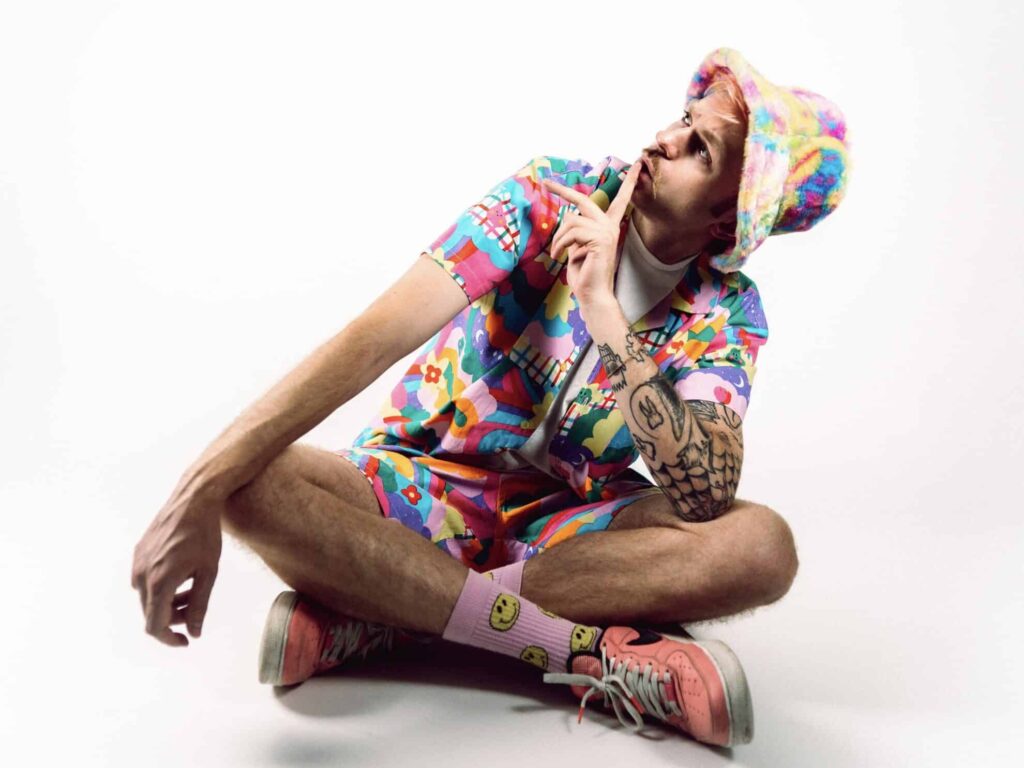
How did you attack creating a cohesive album while simultaneously showcasing your aptitude for producing different bass sub-genres, including dubstep and glitch hop?
Ultimately, it just comes down to being true to myself and making music that I want to hear. If everything is filtered through my taste and my skill set, it’s always gonna have that Father Funk sound.
The upbeat track with Khutz, “Nectar,” features Prezence’s warm, ska-influenced vocals blended with traditional bass elements. What was the vision behind melding these sounds together on a song?
Honestly, it’s just in my blood. I’ve been playing ska and reggae music my whole life — it’s the foundation of my musical vocabulary. The first recordings I ever made were my own original ska-punk songs in my early teens. You might think the ska and reggae influence came from Prezence, but we had the instrumental part of the song pretty much done before I even thought about getting him on board.
You’re currently in the midst of your Funk The System Tour. What makes a Father Funk show an experience fans don’t want to miss?
My DJ sets are really just an excuse for me to showcase my own music and all the music I love. I spend a lot of time weaving it all together into a super high-energy and fun set. It’s definitely the best way to experience my music.
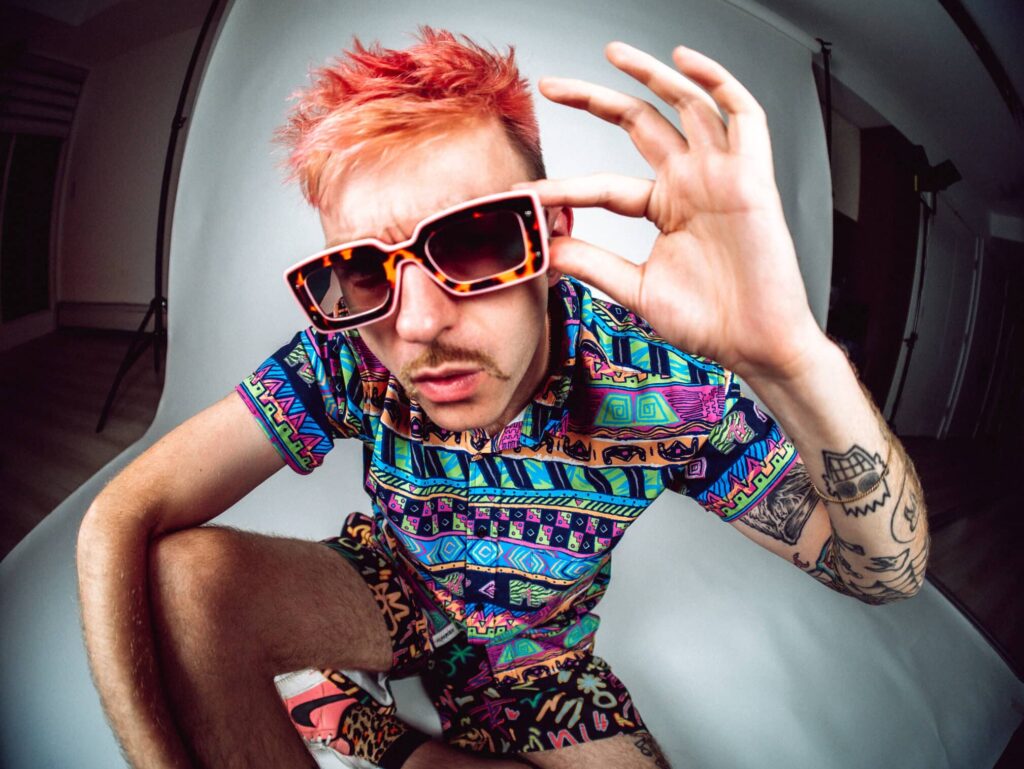
With six years of sobriety under your belt, how do you navigate the party atmosphere of the music industry while maintaining your sobriety?
I think it just comes down to having a deep love of music. If I were doing it for any other reason, it would be hard, but I just love this shit so much. Even back when I was partying, it was always about the music.
If you could collaborate with any artist from a different genre, who would it be, and what do you think they’d lend to your music?
I’ve always wanted to work with Del Tha Funkee Homosapien. He’s been my favorite rapper for as long as I can remember. We’re quite different stylistically, but I think we could make something really special. I did an official remix of a Def3 track he featured on, but it’s not quite the same.
It would also be rad to work with a band. Someone from the Vulf Records camp would be insane – Cory Wong, Fearless Flyers, or, of course, Vulfpeck themselves. I love collaborating; it brings out the best in me, and I always end up learning something new.
To wrap things up, what’s on the horizon for the Father Funk project as we head into 2026?
I just started working with a new agent and manager who are based in the US, so I’m excited to cross more cities and festivals off my bucket list and keep growing my fanbase over there.
Beyond that, I’m just stoked to get back to writing a bunch of new music. These 10 songs have been my main focus for some time now, so it feels good to be getting back into writing again.



